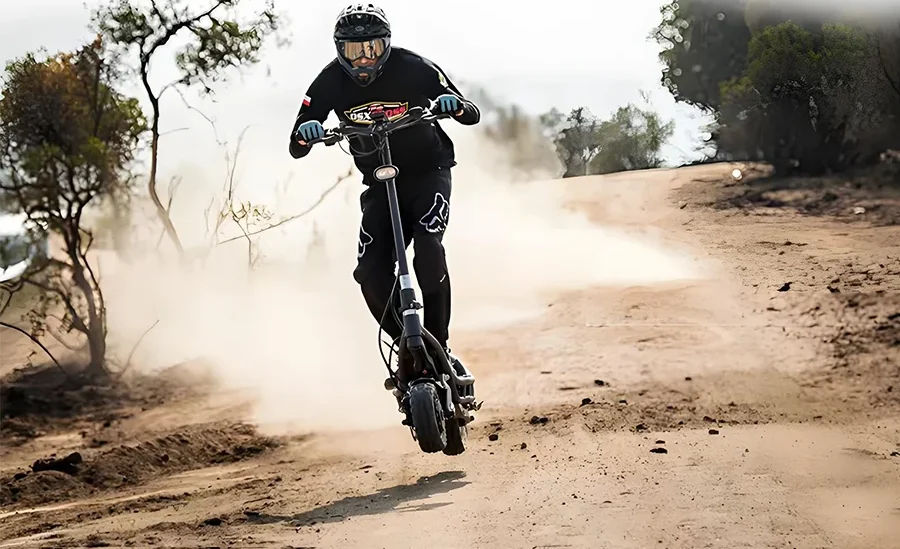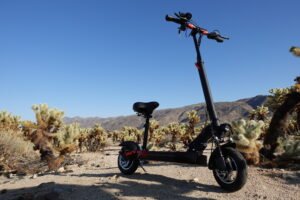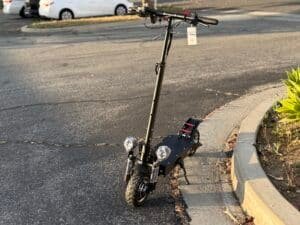Electric scooter driving skills
Electric scooters are fun, fast, and convenient—but only when you know how to ride them right. At first, you may worry about balance, control, or how hard it is to learn. The good news is, most people can master it in just a few days.
Electric scooters are simple to operate and easy to learn. You turn them on, press the throttle to go, and use brakes to stop. Once you get used to the balance and speed, riding becomes second nature—even for beginners.
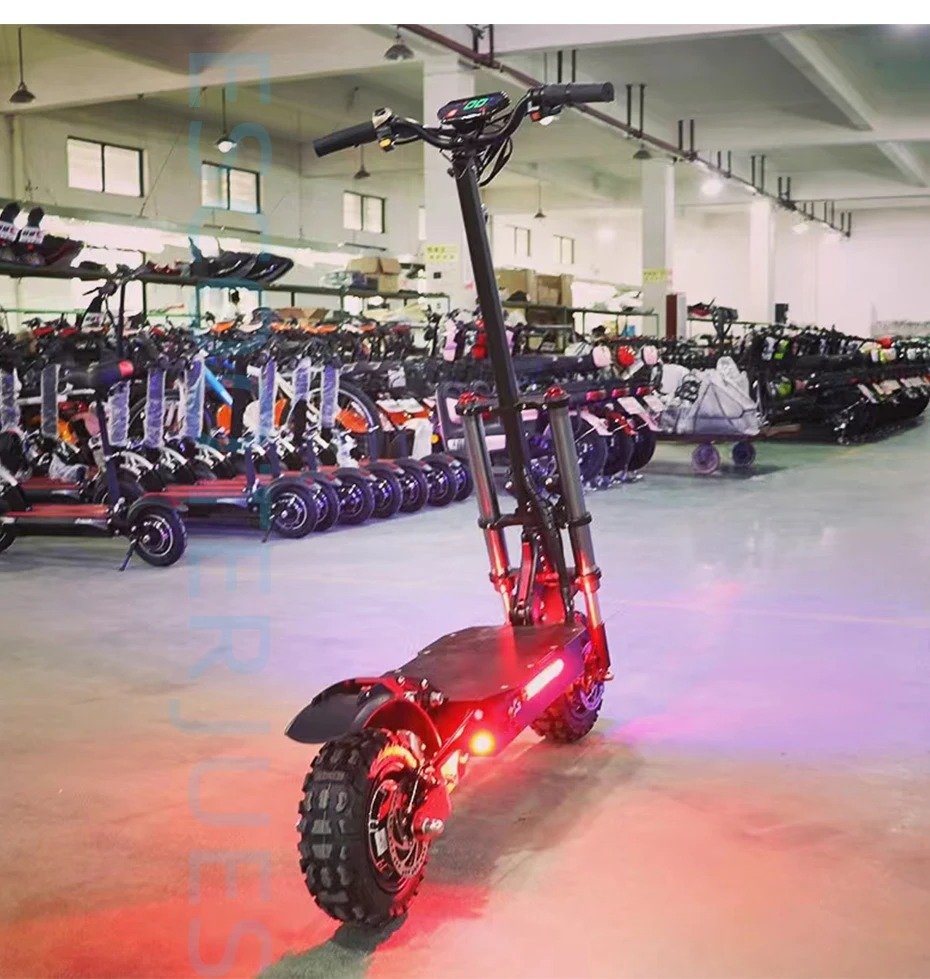
Electric scooters are mainly for short-distance travel. For most daily use, you don’t need any special skills. Just learn to balance, keep a steady speed, and stop safely. But if you want to ride faster or more like a pro, you’ll need to understand a few more techniques—like choosing the right tires or adjusting your braking system. These small upgrades can make a big difference in your riding experience.
Is an electric scooter hard to drive?
Electric scooters may look intimidating if you've never used one. But looks can be deceiving. They're actually one of the easiest personal transport tools to operate—even easier than a bicycle for many people.
Most electric scooters are built with beginners in mind. The controls are straightforward, and the design helps you stay balanced. All you need is a little practice, and you’ll be riding confidently in no time.

I remember my first try. I was nervous, but once I stepped on, pressed the throttle gently, and got moving, I realized how stable it felt. I didn't even fall. I just practiced braking, turning, and slowing down. After 20 minutes, I was cruising down the street like I’d been doing it for weeks. Electric scooters give you control right from the start.
Why scooters are easy for beginners
| Feature | Scooter Advantage |
|---|---|
| Low learning curve | No gear shifts, no pedaling |
| Simple controls | Just throttle and brake |
| Balanced platform | Flat, wide deck helps stay stable |
| Speed settings | Beginner modes limit speed for safety |
Once you’ve done it once, it just clicks.
How do you learn to ride an electric scooter?
Like any skill, riding an electric scooter gets easier the more you do it. The learning curve is short. Most people pick it up within a few practice sessions.
Start slow, on a flat surface. Stand with one foot on the scooter deck, push off with the other foot, then gently press the throttle. Keep your balance, steer with both hands, and practice braking. That’s all you need to begin.
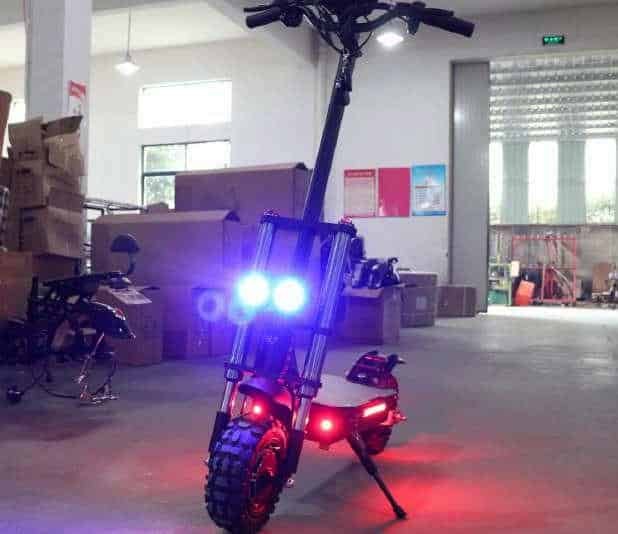
I started by riding in my driveway. No traffic. No distractions. I focused on standing up straight, looking forward—not down—and pressing the throttle gently. I practiced starting, stopping, and making turns. I also made sure I wore a helmet and had elbow pads for extra protection. With each session, I got smoother and more confident.
Electric scooter beginner routine
| Day | Focus Area | Time Needed |
|---|---|---|
| Day 1 | Starting and balance | 20–30 mins |
| Day 2 | Throttle and braking control | 30 mins |
| Day 3 | Turning and stop-start handling | 30 mins |
| Day 4+ | Real-road practice | 30 mins |
Most people become comfortable within three days. After that, you’re ready for real-world riding.
How long does it take to learn an electric scooter?
If you’ve never ridden one before, you might be wondering: how long will it take before I stop wobbling and start riding with confidence? The answer is—less time than you think.
Most new riders can learn the basics of riding an electric scooter in under a week. For people with good balance, even one hour is often enough to feel in control.

I spent three evenings learning mine. On day one, I just practiced going forward and stopping. Day two was all about turns. By day three, I was on the road with traffic. The key is short, focused sessions. You don’t need long hours—just consistent effort.
Learning time estimates by rider type
| Experience Level | Time Needed to Learn | Notes |
|---|---|---|
| First-time rider | 3–5 days | Needs basic practice |
| Bike/skate experience | 1–2 hours | Already good at balancing |
| Confident adult rider | 2–3 sessions | Just getting used to controls |
Everyone learns at a different pace. The most important thing is to feel comfortable and ride safely.
How can I drive the electric scooter better?
Once you’ve mastered the basics, you’ll want to level up your skills. Better riding doesn’t just mean going faster. It means being smoother, safer, and more in control—especially in different environments.
To drive better, work on your posture, practice controlled braking, understand your scooter's settings, and check your tires and lights. Small tweaks can make a big difference in comfort and safety.
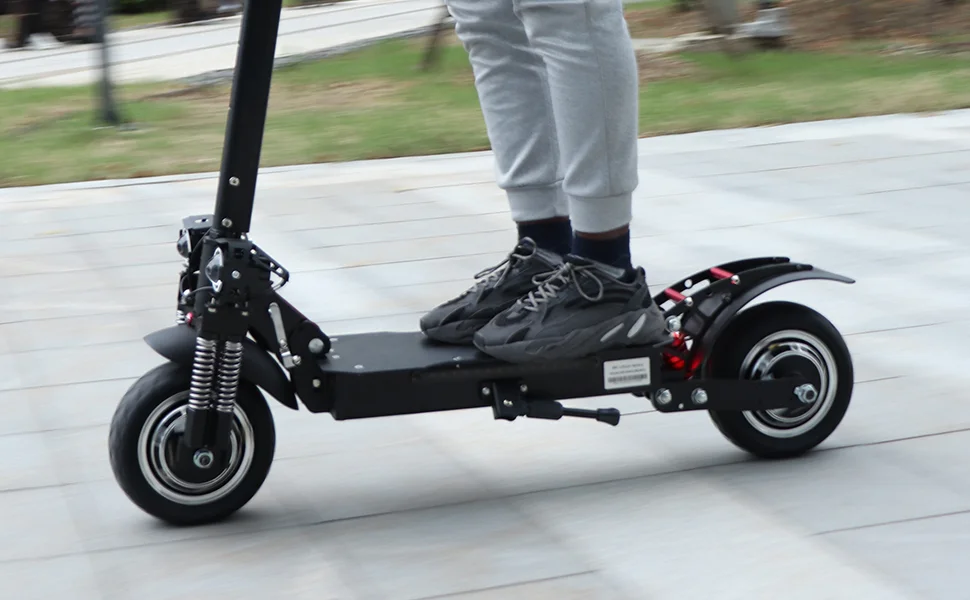
For example, I upgraded my tires to larger ones, which gave me better grip on uneven roads1. I also adjusted the brake sensitivity2 so I could stop more smoothly. I added lights for evening rides, and even customized my grip handles. Now, even longer trips feel easy. And when I hit 25 mph, I feel fully in control.
Advanced riding checklist
| Improvement | Why It Helps |
|---|---|
| Brake tuning | Smoother stops, especially at higher speeds |
| Tire upgrades | More grip, better shock absorption |
| Proper riding stance | Keeps balance and reduces fatigue |
| Rear + side lights | Improves visibility for nighttime riding |
| Maintenance routine | Prevents mechanical issues mid-ride |
And here’s a tip: once you're comfortable, ride in different conditions—daylight, dusk, dry roads, and wet ones. The more scenarios you master, the better you ride.
Conclusion
Electric scooters are easy to learn and exciting to master. With a few hours of practice, anyone can ride safely. And with the right upgrades and habits, you can ride smoother, faster, and more confidently—every day.

